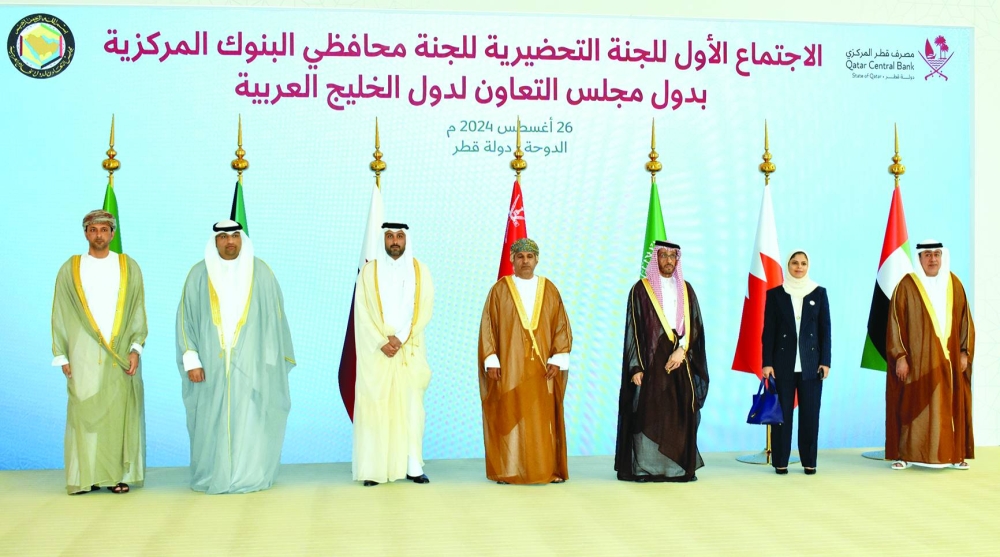The central bank governors in the Gulf Co-operation Council (GCC) will meet next month, as part of efforts to formulate effective strategies that enhance financial and economic stability in the region.
The meet seeks to achieve a “qualitative shift” in the financial sector, which is witnessing fundamental transformations as a result of the growth of modern technology and artificial intelligence (AI) and its applications in financial services.
As a prelude to the 83rd central bankers' meeting, the Qatar Central Bank (QCB) on Monday hosted the first meeting of preparatory committee of the GCC central bank governors meeting.
The preparatory meeting was chaired by Hamad Ahmed al-Mulla, QCB Assistant Governor for Supervision Sector, who stressed on the importance of enhancing co-operation based on the directives of the GCC central bank governors and their recommendations on the necessity of ensuring the stability of financial markets and achieving common economic goals, in light of their emphasis on the importance of exchanging experiences and developing effective policies in order to build strong and flexible financial systems.
The first meeting of the preparatory committee comes at a time characterised by the acceleration of challenges and the emergence of emerging opportunities, which necessitates keeping pace with these developments, he said, adding the outcome of which would form a roadmap, which includes the most prominent topics that will be raised during the meeting of Gulf central bank governors.
Khalid bin Ali bin Salim al-Sunaidi, Assistant Secretary-General for Economic and Development Affairs at the GCC Secretariat said the challenges arising from global economic crises require taking all necessary measures to address and mitigate their repercussions.
The (preparatory) committee plays a significant role in achieving greater economic integration among the GCC countries, particularly in the monetary and banking sectors, he said, highlighting the strength factors of the Gulf countries that could be leveraged for economic diversification and technological advancement.
He said the GCC economies are expected to grow by 3.6% this year and 3.7% in 2025, surpassing major global economies, with global reports suggesting that non-oil sectors will lead economic growth in the GCC countries.
The establishment of the preparatory committee was approved on the sidelines of the 82nd meeting of the GCC central bank governors, which was hosted by Qatar last March, in its capacity as the current presidency of the GCC meetings.

The preparatory committee that laid foundation for next month’s GCC central bank governors’ meet. PICTURE: Thajudheen

